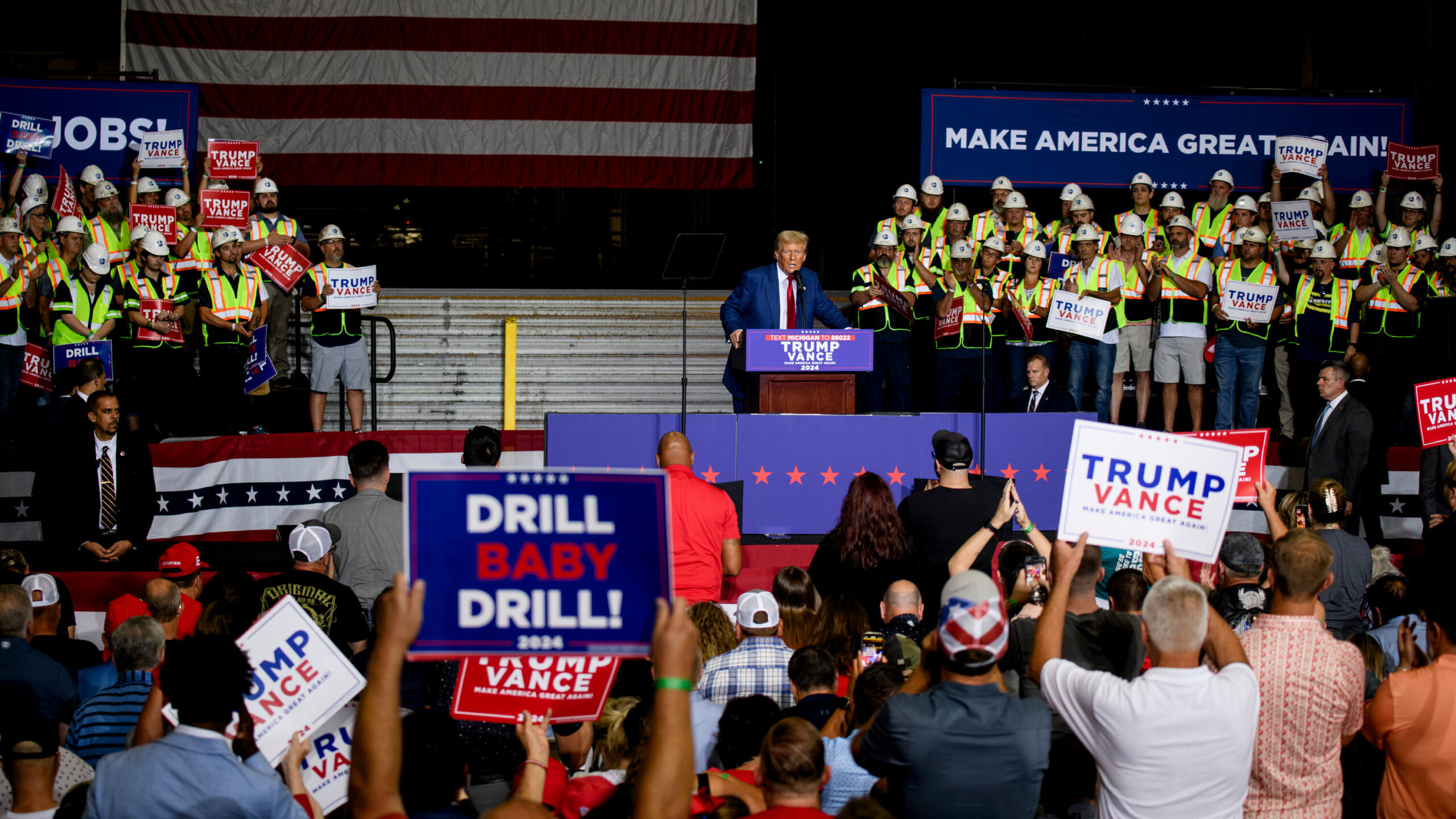North Dakota’s oil production climbed to just under 1.2 million barrels per day in September.
“That’s an increase we had been expecting and anticipating,” said Mark Bohrer, the assistant director of the Oil and Gas Division of the State Department of Mineral Resources. He talked about the September numbers at his monthly “Director’s Cut” briefing.
The numbers are usually not available for two months.
Bohrer told reporters the state produced more than 3.5 billion cubic feet per day of natural gas that month, and the gas capture rate remains around 95 percent. He also said 111 new wells were permitted in October.
“We think that around that 100 mark is the number we need to be at, to be able to grow production one to two percent,” Bohrer said. He also said 95 wells were completed in October.
“WE have 19,200 wells producing now,” Bohrer said. “That’s another record high.”
At a time when United States crude oil production is shattering records, President-elect Donald Trump is preparing to follow through on one of his most ambitious campaign promises: cut Americans’ energy costs in half within one year of taking office by “unleashing” American energy.
“Drill, baby, drill,” was a common rallying cry at Trump rallies throughout the 2024 election as the 45th and soon-to-be 47th president vowed to cut red tape on oil, natural gas, and coal. Trump’s picks to lead the Departments of Energy, Interior and the Environmental Protection Agency are in lockstep with his embrace of fossil fuels and disdain for environmental regulations embraced by the Biden administration.
Over the weekend, Trump announced Liberty Energy CEO Chris Wright as his nominee to lead the Department of Energy. In a video posted to his LinkedIn last year, Wright claimed, “There is no climate crisis.” This claim directly contradicts findings of the government’s own climate assessment and findings of scientists around the world.
Wright will also be part of Trump’s newly formed Council of National Energy, which will be chaired by Trump’s pick to lead the Department of the Interior, North Dakota Gov. Doug Burgum.
Trump said the council “will consist of all Departments and Agencies involved in the permitting, production, generation, distribution, regulation, transportation, of ALL forms of American Energy. This Council will oversee the path to U.S. ENERGY DOMINANCE by cutting red tape, enhancing private sector investments across all sectors of the Economy, and by focusing on INNOVATION over longstanding, but totally unnecessary, regulation.”
With the help of Burgum and former Rep. Lee Zeldin, R-N.Y., nominated to run the EPA, Trump is expected to reverse drilling restrictions on federal land.
According to some in the private sector, there’s no guarantee rolling back these kinds of restrictions will make an impact at a time when oil is about $70 per barrel.
When the CEO of Exxon Mobile Darren Woods was asked in a recent interview what “drill, baby, drill” policies mean for the oil and gas industry, he said, “I’m not sure what those policies actually are. What I would tell you today is, if you look at the unconventional business and our company in particular, we’re looking at the most economic investment levels to produce the oil and to generate the returns for our shareholders.”
Head of petroleum analysis at GasBuddy Patrick De Haan said ultimately, there’s only so much a president can do to affect energy prices.
“(Trump’s) agenda right now, cutting oil prices in half, would go completely against oil companies because it would be taking the product they’re selling and essentially driving the price down in a significant fashion, which would risk their financial outlook,” De Haan said.
De Haan said nothing regulatory is currently preventing companies from increasing output if they wanted to.“There are some regulations that may reduce their potential from drilling in the future but not in a meaningful way,” De Haan said. “We’re talking about small policies that may keep the guardrail to the goalpost a little bit more narrow but there’s still plenty of opportunity for oil companies to raise production and that’s why I don’t think it’s very feasible that the president would really be able to do much to cut energy prices in half.”
Source: Here

